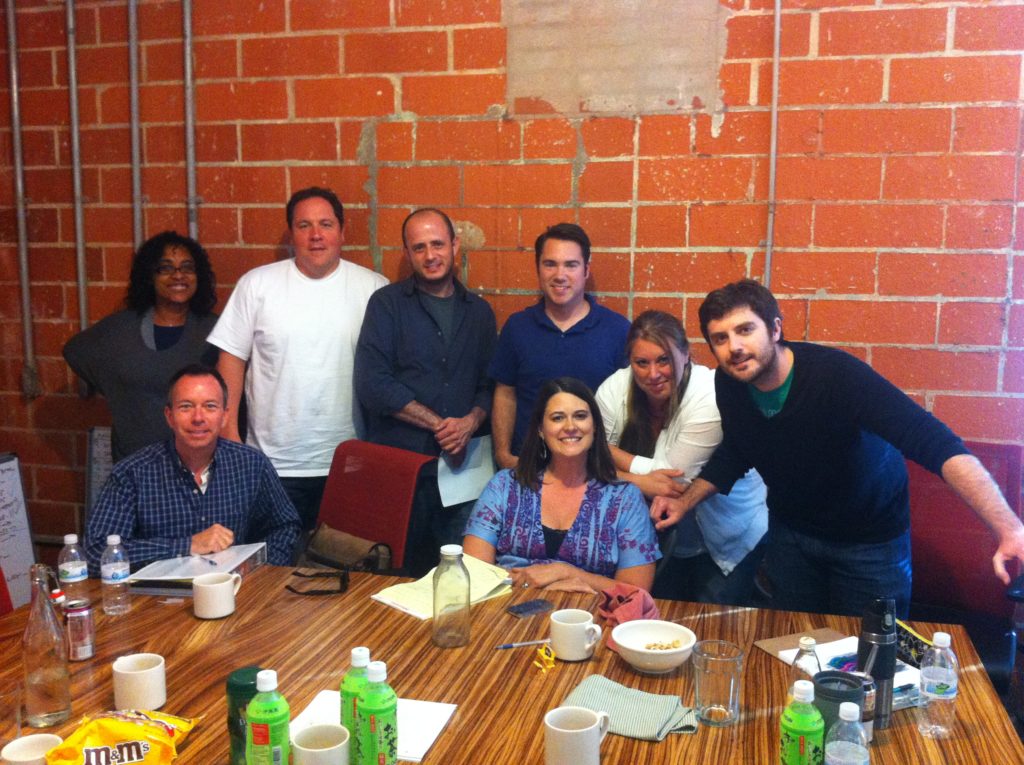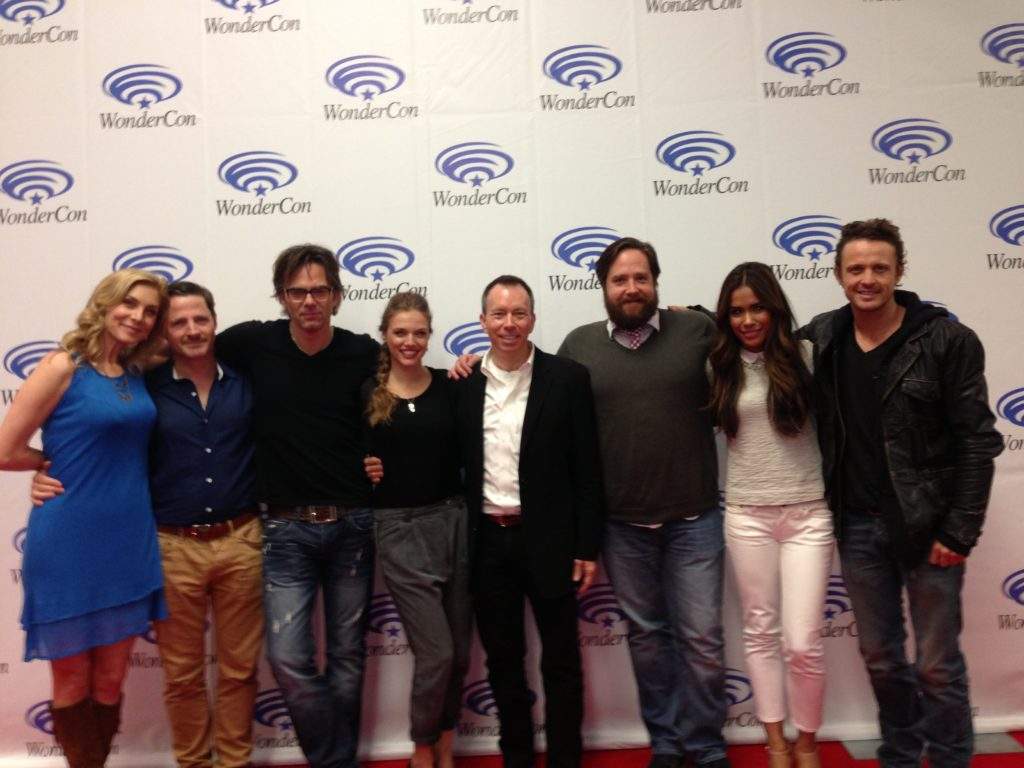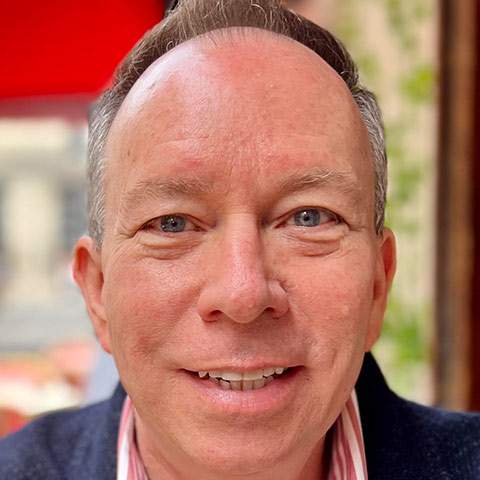Revolution
Great minds at work: Erick Kripke, J.J. Abrams, Jon Favreau.
As my agent sent me pilots for the 2012-2013 TV season, I kept avoiding reading REVOLUTION. I thought, “It’s genre, it’s sci-fi. V was enough for me.” But all the assistants at the agency would ask if I’d read it. Every one of them said it was their favorite pilot of the season. So I caved. What a dope I had been: this was terrific.

Kripke gathered his relatively small staff (7 writers) at the Santa Monica Santa Monica offices of J.J.’s company Bad Robot. The complex was geek Nirvana. All around us, techs were editing effects for STAR TREK INTO DARKNESS. Memorabilia from THE TWILIGHT ZONE lined the walls. We gathered in a small conference room, joined by J.J. for a few days and Jon Favreau, who directed the pilot, for a few weeks. It was stimulating and creative, day after day of great “what if” conversation from which the essential details of the REVOLUTION world, its characters and potential story arcs developed. By the end of the second week, we had roughed out the basic moves of four episodes (the pilot would air as episode 101, so this put us in good shape through episode 105).
Within the first few minutes of our first day, Kripke spilled the beans on why the lights went out. (“It’s nanotech. So there’s that. Don’t tell anybody.”) We made plans to kill off a major character from the pilot, and also knew that we’d have to kill off at least one more character without warning as Season 1 unspooled. The premise of REVOLUTION sets the series in a very dangerous world. We needed to keep the audience on edge, just as our characters would be, genuinely worried that someone they care about may not live. It was an audacious (for network) move, and brilliant.

The first season was the most demanding experience of my career. We worked six or seven days a week, every day, at least ten hours a day, often more. Entire scripts were plotted and written over weeks, only to be thrown out and started over from scratch in an effort to keep the show surprising and engaging. New scenes for episodes already filmed and edited were written and shot constantly. Backstories were invented, changed, re-invented. It was exhausting and exhilarating. Creative leadership, a perfect cast, hardy directors and compelling storylines turned out a series I’m proud to have been a part of.
We often asked one another, “How would you do if the lights went out?” I think I’d be fine initially – We have a well-stocked wine cellar and lots of bottled water. But once supplies ran out? Stay tuned.
